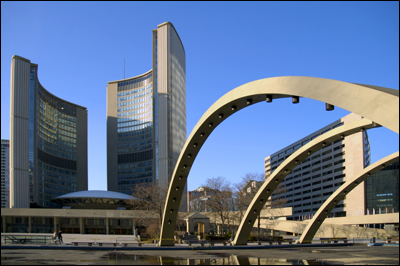
The first day of June will be the official start of the Seniors Month celebration as Mayor Rob Ford, on behalf of Toronto City Council, will proclaim June as Seniors Month in Toronto this Wednesday at the Members Lounge, Toronto City Hall, 100 Queen St. W., 1:30 p.m.
Also, Representatives of the City of Toronto and members of the Toronto Seniors Forum will host a Seniors Month celebration called “Seniors on the Move toward an Age-Friendly City.”
Talented seniors will provide entertaining performances for the celebration of Seniors Month.
Furthermore, information tables will showcase federal, provincial and municipal programs and services for seniors.
Here are some very interesting statistics of Seniors in Toronto:
Population

- “According to the latest Census (2001), there are approximately 338,000 people in Toronto over the age of 65, representing 14 per cent of the City’s total population.
- The City’s population continues to age. Seniors are the fastest growing age group. The number of seniors has almost doubled within the last 30 years. The 75+ age group alone, has increased by 138 per cent since 1971.
- By 2031, projections are that 16 per cent of our population – or nearly 480,000 people – will be over the age of 65. The 75+ age group is expected to increase by nearly 50 per cent between 2001 and 2031.
- Women make up a large share of the senior population, especially in the very oldest age range. In 2001, women represented 59 per cent of the population aged 65 and over, and 74 per cent of the population aged 90 and over.
- Seniors predominantly live in family households. In this regard, 56 per cent lived in husband-wife families, 39 per cent were single seniors, and 5 per cent lived in lone-parent families.
- Roughly one in every four seniors in Toronto lives alone.
Health
- Current life expectancy in Toronto is estimated at 79 years. Toronto had the highest life expectancy and years of disability-free life expectancy at age 65 in Ontario.
- While seniors are living longer, many suffer from poor health. In Toronto, 22 per cent of seniors indicated limitations in the activities they can do at home due to one or more long-term physical, mental or health conditions.
Income
- In 2000, the median incomes for senior husband-wife families, lone-parent families, and single persons in Toronto were $43,900, $48,900, and $17,700 respectively. It should be noted that the medians for senior husband-wife and senior singles were lower than their younger counterparts.
- Since 1995, the median income of senior-led families and single seniors in Toronto grew steadily as the economy rebounded from the recession of the early 1990’s. From 1995 to 2000, the median levels for husband-wife families and lone parent families grew by 11 per cent and 13 per cent respectively. While the median income level for single seniors also increased from $16,400 in 1995 to $17,700 in 2000 (7.9 per cent), many of these individuals continue to face serious economic challenges.
- Despite the positive growth over the past five years, median incomes for senior families and single seniors are below 1990 levels when adjusted for inflation. At the same time, the number of low-income seniors has continued to rise since 1995.
- In 2000, 16.9 per cent of Toronto seniors had incomes below Statistics Canada’s Low Income Measure (LIM). In 2000, the LIM for a family of two parents and two children was $26,110. For a lone-parent and child, the LIM was $18,280. From 1995 to 2000, the number of low-income seniors increased from 28,620 to 55,660.
Housing
- A significant number of seniors live in abject poverty or are homeless. For example, the percentage of households 60 years of age and older in Toronto that use food banks increased from 5 per cent in 1995 to 9 per cent in 2002. The “per day after-rent income” of people in senior households is $7.56 in 2002.
- As of June 30, 2002, there were 61,978 applications on the social housing waiting list. Of this total, 20 per cent, or 12,626 applications, were for seniors.
- Nearly 400 people 65 years of age or over were staying in the emergency hostel system in 2000.
- Of all Canadian cities, Toronto has the second-highest number of senior-led households in core housing need (inadequate, unsuitable or unaffordable).
- The largest problem for senior-led households is affordability, especially for tenants, who in 1996 comprised 32 per cent of senior-led households in Toronto.”
The above statistics help us to realize the growing importance of seniors in Toronto.
Toronto, Ontario, Canada
Media Advisory
May 30, 2011
Mayor Ford to proclaim June as Seniors Month
Mayor Rob Ford, on behalf of Toronto City Council, will proclaim June as Seniors Month in Toronto. Representatives of the City of Toronto and members of the Toronto Seniors Forum will be on hand during the proclamation and will host a celebration called “Seniors on the Move toward an Age-Friendly City.”
Date: Wednesday, June 1
Time: 1:30 p.m.
Location: Members Lounge, Toronto City Hall, 100 Queen St. W.
Entertainment will be provided by performers drawn from Toronto’s diverse community of talented seniors. Information tables will showcase federal, provincial and municipal programs and services for seniors.
Toronto is Canada’s largest city and sixth largest government, and home to a diverse population of about 2.6 million people. Toronto’s government is dedicated to delivering customer service excellence, creating a transparent and accountable government, reducing the size and cost of government and building a transportation city. For information on non-emergency City services and programs, Toronto residents, businesses and visitors can dial 311, 24 hours a day, 7 days a week.
——————————————————————
You may also like:
